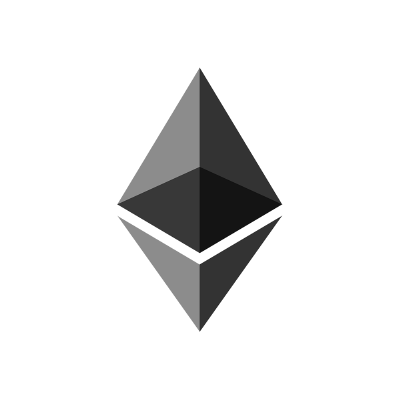Go-ethereum

Plugin: go.d.plugin Module: geth

Overview
This collector monitors Go-ethereum instances.
This collector is supported on all platforms.
This collector supports collecting metrics from multiple instances of this integration, including remote instances.
Default Behavior
Auto-Detection
By default, it detects Go-ethereum instances running on localhost.
Limits
The default configuration for this integration does not impose any limits on data collection.
Performance Impact
The default configuration for this integration is not expected to impose a significant performance impact on the system.
Metrics
Metrics grouped by scope.
The scope defines the instance that the metric belongs to. An instance is uniquely identified by a set of labels.
Per Go-ethereum instance
These metrics refer to the entire monitored application.
This scope has no labels.
Metrics:
| Metric | Dimensions | Unit |
|---|---|---|
| geth.eth_db_chaindata_ancient_io_rate | reads, writes | bytes/s |
| geth.eth_db_chaindata_ancient_io | reads, writes | bytes |
| geth.eth_db_chaindata_disk_io | reads, writes | bytes |
| geth.goroutines | goroutines | goroutines |
| geth.eth_db_chaindata_disk_io_rate | reads, writes | bytes/s |
| geth.chaindata_db_size | level_db, ancient_db | bytes |
| geth.chainhead | block, receipt, header | block |
| geth.tx_pool_pending | invalid, pending, local, discard, no_funds, ratelimit, replace | transactions |
| geth.tx_pool_current | invalid, pending, local, pool | transactions |
| geth.tx_pool_queued | discard, eviction, no_funds, ratelimit | transactions |
| geth.p2p_bandwidth | ingress, egress | bytes/s |
| geth.reorgs | executed | reorgs |
| geth.reorgs_blocks | added, dropped | blocks |
| geth.p2p_peers | peers | peers |
| geth.p2p_peers_calls | dials, serves | calls/s |
| geth.rpc_calls | failed, successful | calls/s |
Alerts
There are no alerts configured by default for this integration.
Setup
Prerequisites
No action required.
Configuration
File
The configuration file name for this integration is go.d/geth.conf.
The file format is YAML. Generally, the structure is:
update_every: 1
autodetection_retry: 0
jobs:
- name: some_name1
- name: some_name1
You can edit the configuration file using the edit-config script from the
Netdata config directory.
cd /etc/netdata 2>/dev/null || cd /opt/netdata/etc/netdata
sudo ./edit-config go.d/geth.conf
Options
The following options can be defined globally: update_every, autodetection_retry.
Config options
| Name | Description | Default | Required |
|---|---|---|---|
| update_every | Data collection frequency. | 1 | no |
| autodetection_retry | Recheck interval in seconds. Zero means no recheck will be scheduled. | 0 | no |
| url | Server URL. | http://127.0.0.1:6060/debug/metrics/prometheus | yes |
| timeout | HTTP request timeout. | 1 | no |
| username | Username for basic HTTP authentication. | no | |
| password | Password for basic HTTP authentication. | no | |
| proxy_url | Proxy URL. | no | |
| proxy_username | Username for proxy basic HTTP authentication. | no | |
| proxy_password | Password for proxy basic HTTP authentication. | no | |
| method | HTTP request method. | GET | no |
| body | HTTP request body. | no | |
| headers | HTTP request headers. | no | |
| not_follow_redirects | Redirect handling policy. Controls whether the client follows redirects. | no | no |
| tls_skip_verify | Server certificate chain and hostname validation policy. Controls whether the client performs this check. | no | no |
| tls_ca | Certification authority that the client uses when verifying the server's certificates. | no | |
| tls_cert | Client TLS certificate. | no | |
| tls_key | Client TLS key. | no |
Examples
Basic
A basic example configuration.
jobs:
- name: local
url: http://127.0.0.1:6060/debug/metrics/prometheus
HTTP authentication
Basic HTTP authentication.
Config
jobs:
- name: local
url: http://127.0.0.1:6060/debug/metrics/prometheus
username: username
password: password
Multi-instance
Note: When you define multiple jobs, their names must be unique.
Collecting metrics from local and remote instances.
Config
jobs:
- name: local
url: http://127.0.0.1:6060/debug/metrics/prometheus
- name: remote
url: http://192.0.2.1:6060/debug/metrics/prometheus
Troubleshooting
Debug Mode
Important: Debug mode is not supported for data collection jobs created via the UI using the Dyncfg feature.
To troubleshoot issues with the geth collector, run the go.d.plugin with the debug option enabled. The output
should give you clues as to why the collector isn't working.
-
Navigate to the
plugins.ddirectory, usually at/usr/libexec/netdata/plugins.d/. If that's not the case on your system, opennetdata.confand look for thepluginssetting under[directories].cd /usr/libexec/netdata/plugins.d/ -
Switch to the
netdatauser.sudo -u netdata -s -
Run the
go.d.pluginto debug the collector:./go.d.plugin -d -m geth
Getting Logs
If you're encountering problems with the geth collector, follow these steps to retrieve logs and identify potential issues:
- Run the command specific to your system (systemd, non-systemd, or Docker container).
- Examine the output for any warnings or error messages that might indicate issues. These messages should provide clues about the root cause of the problem.
System with systemd
Use the following command to view logs generated since the last Netdata service restart:
journalctl _SYSTEMD_INVOCATION_ID="$(systemctl show --value --property=InvocationID netdata)" --namespace=netdata --grep geth
System without systemd
Locate the collector log file, typically at /var/log/netdata/collector.log, and use grep to filter for collector's name:
grep geth /var/log/netdata/collector.log
Note: This method shows logs from all restarts. Focus on the latest entries for troubleshooting current issues.
Docker Container
If your Netdata runs in a Docker container named "netdata" (replace if different), use this command:
docker logs netdata 2>&1 | grep geth
Do you have any feedback for this page? If so, you can open a new issue on our netdata/learn repository.